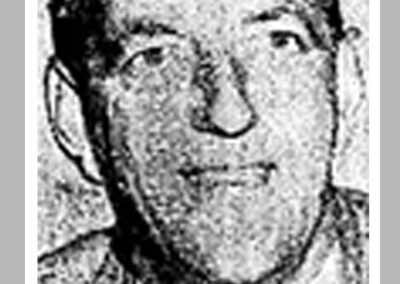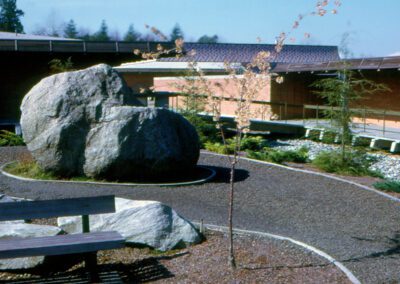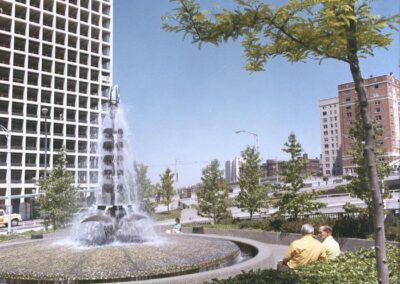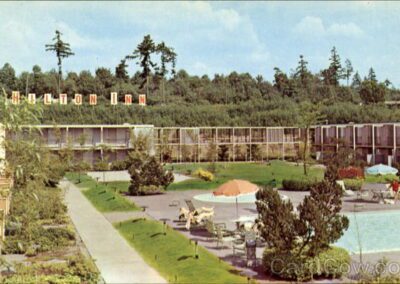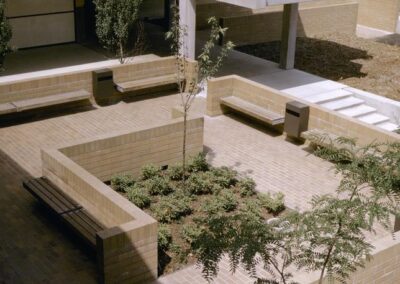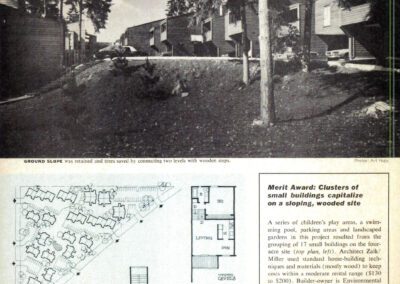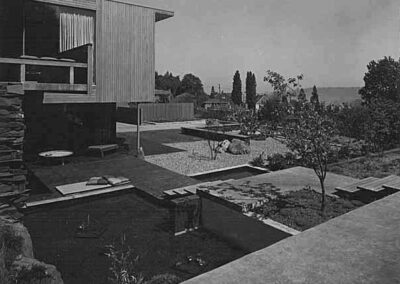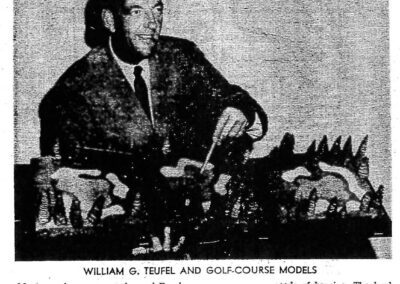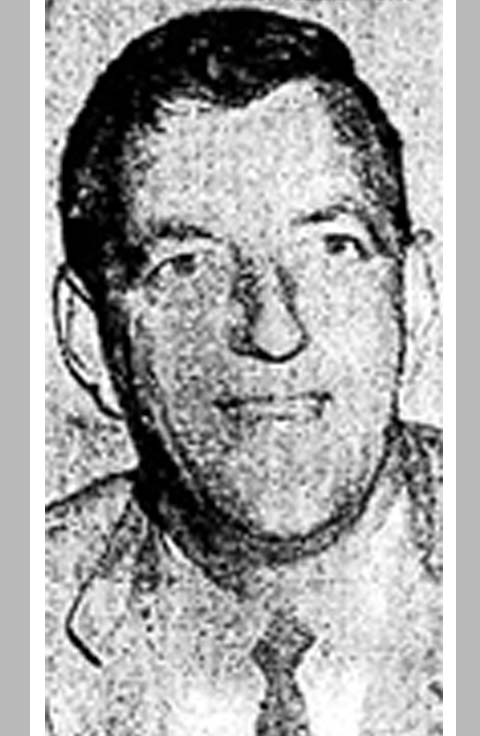
Teufel, William G.
(1925 – 2007)
Anyone who has visited Seattle Center, most of the community college surrounding Seattle or played golf on any of a dozen local golf courses has experienced the work of landscape architect William G. Teufel.
He was born in Fairbanks, Alaska, on April 5, 1925. In the late 1930s, his parents, Frank and Lucille Teufel, moved to Seattle, where for nearly forty years they operated a greenhouse in the Madison Park neighborhood. It was there that William developed an early interest in landscape architecture.
After graduating from Garfield High School, Teufel enlisted in the Navy and served overseas during World War II. Subsequently, he entered Washington State University on the GI Bill and decided to study landscape architecture. Eventually Teufel transferred to the University of Oregon, where he was awarded a Bachelor of Science degree in landscape architecture in 1953.
In 1956 Teufel opened a landscape architecture firm in Seattle and, for nearly forty years, he collaborated with many of the best architects in the Pacific Northwest. This association led to a variety of publications in local and regional newspapers. Teufel seemed to have a knack for working with architects whose designs were highlighted in the Seattle Times Home-of-the-Month program.
Among the notable residential projects are the Lewis J. Dowell House (1954 with Paul H. Kirk); the Dr. Harry Rice House (1955 with Gene Zema); the Electric-Living House (1956 with Paul H. Kirk); the Don Kalis House (1958 with Gene Zema); the Dr. Robert Zech (1959, with Bystrom & Greco); the Frank Gilbert House in the Highlands (1960, with Paul H. Kirk); a Seattle Times Home-of-the-Month (1964, with Bell & Greve); and the Dr. Peterson House in the Canterbury neighborhood of Seattle (1968, with Barden Erickson).
Non-residential projects include landscaping at Sacred Heart Church & Rectory in Bellevue (1958 with John Maloney); the Seattle Eye Clinic (1958, with Klontz & Wrede); the Seattle Hilton Inn by the airport (1960, with Skidmore, Owings & Merrill); Research Technology Laboratory (1966) in Richland; Kobe Terrace Park (1975); as well as the master plan for landscaping at Bellevue Community College.
However it was his design for the master landscaping plan for the 1962 Seattle World’s Fair that brought Teufel additional commissions. Following the fair, he provided landscaping designs for countless housing developments, office parks and commercial buildings.
He was also considered by his peers to be one of the most accomplished golf-course architects in the nation. His appreciation for the greens began in high school where he was ranked No. 1 on the Garfield High School golf team. During those years he caddied at the Broadmoor Golf Club to earn extra money. His golf course projects include the Wing Point course on Bainbridge Island (1963); Twin Lakes Golf & Country Club in Federal Way (1966); Useless Bay Golf Course in Langley (1966); Tam-O-Shanter Golf & Country Club in Bellevue (1967); Fairwood Golf Course in Maple Valley (1968); Hat Island Golf and Country Club on Hat Island (1969); Wing Point Golf and Country Club in Bellevue; Colockum Ridge Golf Course in Quincy; the Eagles Pride Course – Green/Red on Fort Lewis (1979); the Quincy Valley Course in Quincy (1986); and Gleneagles in Arlington (1993).
One of his proudest accomplishments was acquiring a 3-acre site in Woodinville on a hillside northwest of the Chateau Saint Michelle winery, where in 1988 he worked with an architect to design his own home. On the site he planted 4,500 rhododendrons and held an annual spring garden picnic that attracted hundreds of friends.
In 1995, Teufel was inducted as a “fellow” of the American Society of Golf Course Architects (ASGCA). He was a founding member of the Northwest Forum, a private group drawing from various professions that meet to discuss solutions to regional problems.
Teufel passed away on November 5, 2007 in Woodinville at the age of 82.
– Michael C Houser
Bellevue Community College | Bellevue
Built 1969 | Source: University of Washington Special Collections
Lewis J. Dowell Residence | Seattle
Built 1954 | Source: University of Washington Special Collections
